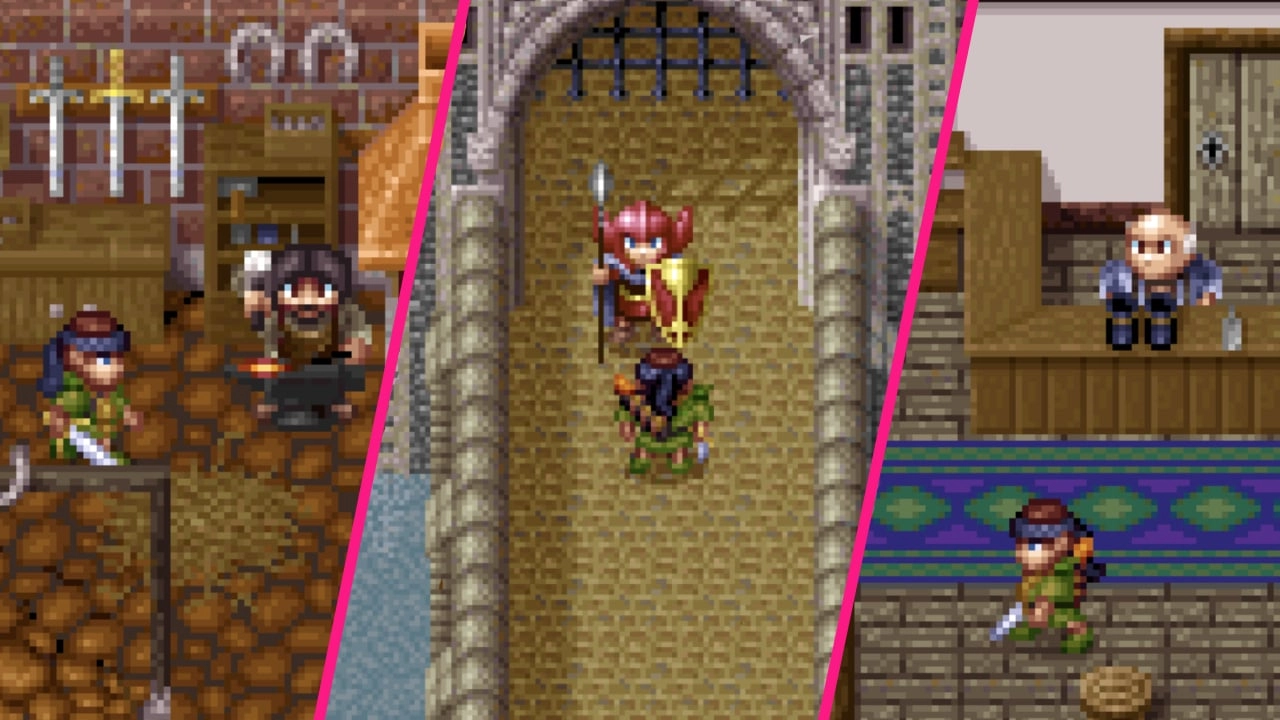
In the early 90s, a UK-based developer known as Team17, renowned for the success of their Worms franchise, set out to create an RPG that would rival the legendary 'Legend of Zelda' series. Named Witchwood, this game promised to bring a fresh take on the genre, infused with British folklore and elements designed to outshine its competitors in "the little things." This story uncovers the origins, development, and eventual demise of Witchwood, a game that could have left a significant mark on RPG history had it reached completion.
Witchwood was the brainchild of a small studio called Synergy Software, formed by Severn brothers after their previous company dissolved, leaving its team without jobs. Seeking to work on something more ambitious and inspired by the likes of 'The Legend of Zelda: A Link to the Past', they envisioned a PC-based RPG brimming with innovations: smarter AI, dynamic NPC interactions, and an evolving open world.
The game's development started in 1994 and quickly gained attention. It featured a young adventurer's journey to thwart an evil witch's curse, which had ravaged the lands following her execution. The witch, now in the form of a tree, had strewn her malevolent influence across the realm, mutating the environment and the creatures within it. As the hero Pip, players would combat these threats and aim to liberate the lands from her grasp.
Team17 entered the picture by signing Witchwood during its initial development phase, promising ports on various platforms such as the Amiga, PlayStation, Sega Saturn, and Atari Jaguar. However, despite the hype, these other versions never materialized, with the focus remaining solely on the PC. Synergy aimed to root the game in British heritage, drawing from local myths and the dark vibe of Hammer Horror films to create a distinctive "very British" Legend of Zelda.
Development continued, encapsulating a rich story and implementing features such as an intricate inventory system, a robust trade economy with NPCs, and branching decision trees to enhance player engagement and choice. The expectations for Witchwood were heightened by its developers' ambition to moderate common frustrations with the genre, aiming for a more intelligent and immersive experience.
As the project wore on, Team17's involvement grew, leading to Synergy's developers relocating to Team17's offices for closer collaboration. New talents, including demoscene musician Bjørn Lynne, joined in efforts to shape Witchwood's world and the soundscapes that would envelop it. A hearty mix of Norwegian folk inspiration and various artists' influences produced an acoustic-rich soundtrack marrying electric guitars with traditional woodwinds.
Despite these collaborative efforts, Witchwood faced significant hurdles. Challenges such as feature creep, a lack of a solid plan, and underestimation of the resources required for RPG development saw the game's progress slow dramatically. Meanwhile, Team17 hit jackpot success with Worms, which understandably diverted the company's focus and resources.
With Worms soaring and Witchwood stalling, the tough decision came in 1995 to cancel the RPG project. Both Synergy and Team17 developers recognized that the choice, while difficult, was rooted in practicality. The risks associated with continuing the project's development, given the unclear endpoint and escalating costs, could not justify the potential benefits. Thus, despite igniting imaginations and capturing attention in its conceptual phase, Witchwood slipped quietly into the shadows, its potential unrealized, as the gaming world's focus turned to Worms and other successes.
Today, the story of Witchwood serves as a poignant reminder of the volatile nature of game development and the delicate balance between creativity and commercial viability. Even so, the surviving demo and discussions around the game offer an intriguing glimpse into what could have been an exceptional addition to the RPG landscape. For those curious, remnants of Witchwood's aspirations are available to explore online, capturing a snapshot of a game that sought to push boundaries but, ultimately, fell prey to the ever-shifting gaming industry.
You must be logged in to post a comment!